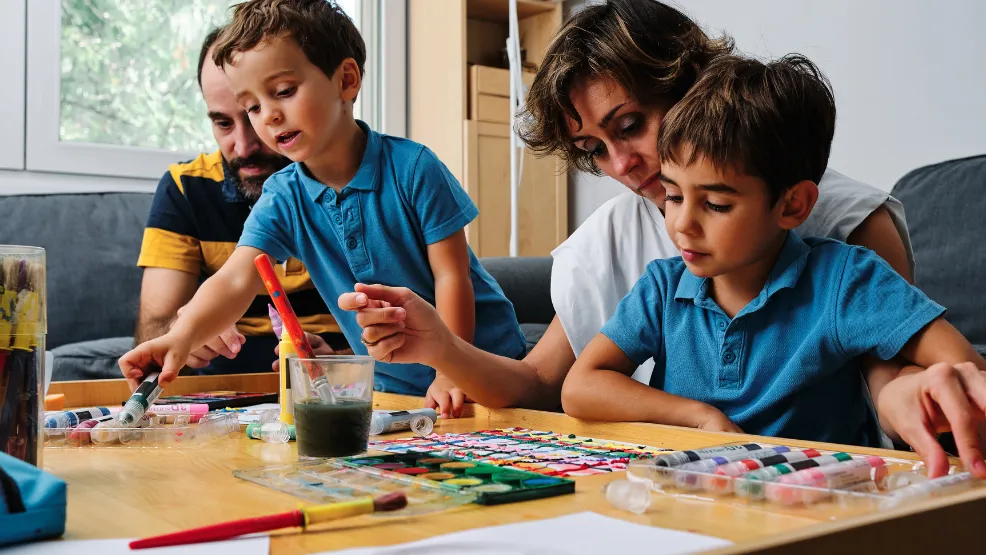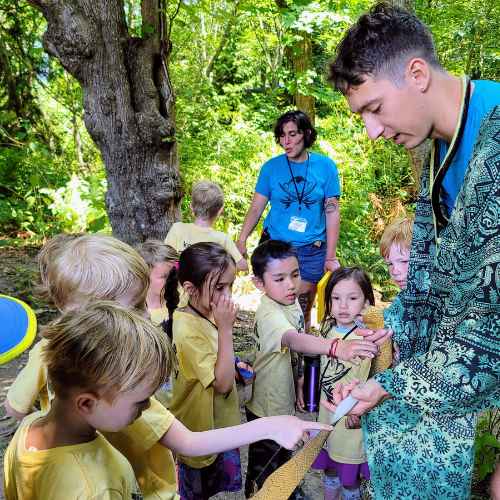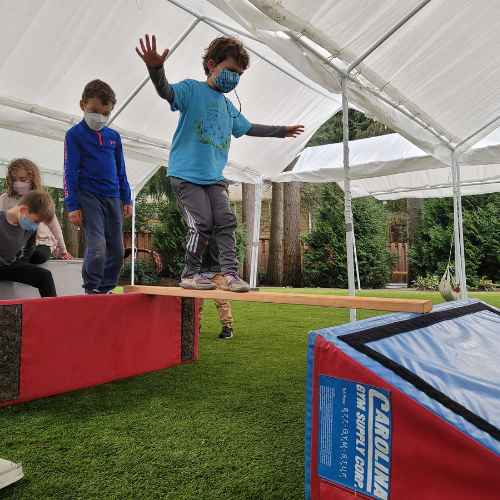
In today’s world, where connections and understanding between people are more important than ever, teaching your kids about social awareness is a big deal. Think of social awareness as the secret sauce that helps your child understand and empathize with others’ feelings and viewpoints. It’s what turns them into great friends, compassionate individuals, and, eventually, adults who know how to navigate the complexities of social interactions and contribute positively to their communities.
But, let’s be honest, drilling these concepts into young minds isn’t always straightforward, especially if it feels like a lesson or chore to them. This is where the magic of games and play steps in. Imagine if learning about empathy, diversity, and cooperation could be as fun as game night or a playdate. That’s exactly what we’re diving into here.
The Power of Games and Play in Learning
There’s something truly special about the way games and play naturally draw children in. It’s like they have their own language of fun and engagement that speaks directly to kids, making these activities the perfect backdrop for learning. When your child is deeply engaged in play, their brain is in prime mode for absorbing new information, experimenting with ideas, and developing critical thinking skills. This dynamic environment isn’t just about having fun; it’s a rich soil where cognitive, social, and emotional growth takes root.
Before we get ahead of ourselves, you might be wondering, what is social awareness and how does play fit into this picture? Well, as your child navigates the rules of a board game, shares toys during playtime, or takes turns in a group activity, they’re getting a crash course in understanding and respecting others’ feelings and perspectives. This is social awareness in action—learning to read social cues, empathize with peers, and cooperate towards common goals.
Play also acts as a pivotal role in emotional development. Through games, children learn to manage feelings of frustration when they lose or excitement when they win, all within a safe and supportive environment. They start to understand their own emotions and how to express them appropriately, as well as how to recognize and respond to the emotions of others.
Why Social Awareness is Crucial for Kids?
Social awareness is like the compass that guides kids through the complex world of human interactions. It’s about recognizing and understanding the feelings, thoughts, and needs of others, and it plays a critical role in children’s development. With social awareness, kids learn empathy, which is the ability to see things from someone else’s perspective and feel what they feel. This empathy is the building block of strong, healthy relationships. It teaches kids to be kind, considerate, and compassionate—qualities that are essential for making friends, working in teams, and ultimately, building a supportive network around them.
Social awareness also extends beyond personal relationships. It’s what enables children to fit into different social settings and understand the broader community they’re a part of. Kids with a strong sense of social awareness are more likely to engage in community service, stand up for others, and contribute positively to society. They’re the future leaders, volunteers, and compassionate citizens who recognize the value of diversity and the importance of inclusivity making the world a better place for everyone.
How Games and Play Teach Social Awareness?
Let’s explore into how different types of games and play can help nurture social awareness in kids:
Interactive Board Games
Board games are a classic example of fun that educates. Games like “The Game of Life” or “Monopoly” require players to make decisions based on understanding others’ positions while encouraging empathy. Cooperative board games, where players work together to achieve a common goal, such as “Pandemic” or “Forbidden Island,” are excellent for teaching the importance of teamwork and cooperation. These games often require players to discuss strategies, negotiate, and make collective decisions, all of which are critical components of social awareness.
Role-Playing Activities
Role-playing and pretend play are like the Swiss Army knife of social skills development. When kids engage in role-playing, they step into someone else’s shoes, whether it’s a firefighter, a teacher, or a superhero.
This imaginative play allows children to explore various social roles, understand different perspectives, and practice empathy. For example, a simple act of playing “house” can teach a child about family dynamics, responsibilities, and how to care for others, reflecting real-life social structures and emotions.
Outdoor Group Games
Remember the days of “Red Rover,” “Capture the Flag,” or even a simple game of tag? Outdoor group games are not just great for physical health; they’re incredible for teaching social awareness. Through these games, children learn about teamwork, as they often have to work together to achieve a common objective.
They also learn about leadership and communication skills as they navigate through the rules, strategize together, and encourage one another. Such activities naturally foster an environment where kids learn to understand and respect each other’s strengths and weaknesses, promoting inclusivity and cooperation.
Digital Games and Apps
In the digital age, games and apps also play a significant role in teaching social awareness. Carefully selected digital tools can be powerful allies. For instance, simulation games where players manage cities or civilizations, like “SimCity” or “Civilization,” can teach about the complexities of society and the importance of making decisions that benefit the community.
Educational apps designed to promote social skills can offer scenarios where children have to solve problems by understanding different viewpoints, thus enhancing their empathy and social understanding. However, it’s crucial to choose these digital tools wisely, focusing on those that encourage active engagement and reflection on social issues.
Implementing Game-Based Learning at Home and School
Implementing game-based learning both at home and in school settings can be a transformative approach to education, blending the joy of play with the richness of learning. To successfully integrate this method, it’s essential to consider both the environment and the specific needs of each child.
At Home
- Create a Game-Friendly Environment: Dedicate a space in your home for games and play. This could be a corner of the living room or a specific shelf for board games and puzzles.
- Incorporate Games into Daily Routines: Identify times during the day when games can be naturally included, such as after homework or before bedtime.
- Choose Educational Games: Select games that align with your child’s current learning objectives, whether it’s language skills, math, or social-emotional learning.
- Family Game Nights: Regularly organize family game nights to encourage social interaction and learning together as a family.
- Encourage Variety: Rotate between different types of games (board games, card games, role-playing) to keep the experience fresh and cover a range of skills.
At School
- Integrate Games into Curriculum: Teachers can incorporate educational games into their lesson plans, using them as tools to reinforce concepts taught in class.
- Group Play for Team Skills: Use games that require teamwork to teach students about cooperation, leadership, and collective problem-solving.
- Game-Based Projects: Assign game-based projects where students can create their games, fostering creativity and application of knowledge.
- Technology Integration: Utilize digital tools and apps that are educational and align with the curriculum.
- Regular Game Sessions: Set aside time each week for game-based learning activities, making it a consistent part of the school routine.
In both home and school environments, the key is to ensure that the games are not only educational but also enjoyable and age-appropriate.
Engage with Kong Academy’s Programs
Dive into a world where learning about social awareness is as fun as playtime! At Kong Academy, we invite you and your child to explore our educational programs, designed with the perfect blend of games and play to foster empathy, cooperation, and community understanding.
Join our community today to gain access to an array of resources, unparalleled support, and a platform to share your experiences with like-minded parents and educators. Don’t miss this chance to make a meaningful impact on your child’s development in the most engaging way possible. By integrating these playful learning experiences into daily routines, we can guide our children towards becoming more socially aware individuals.
Teaching social awareness to kids through games & play that are part of Kong Academy’s Programs is an even better choice!
GET Access to the ULTIMATE PLAY DATE PACKAGE (value: $49) for FREE!



